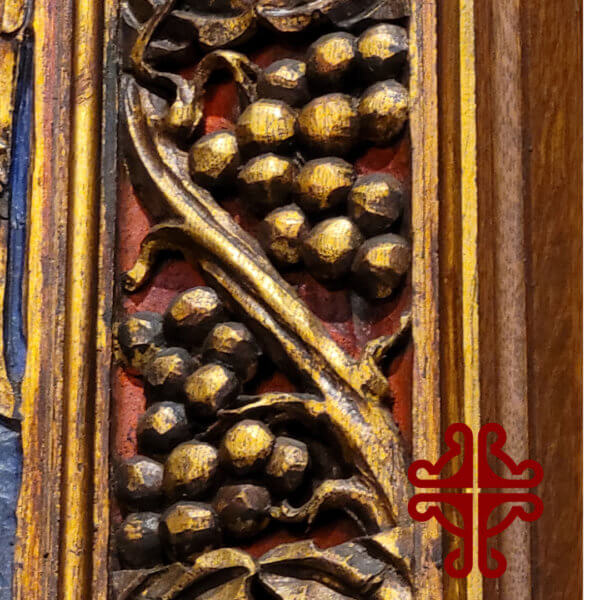
Exploring Wine Country
In the early years of my career I was sent out to California. My task was to explore the vineyards of the wine country to select a property for my company to acquire. It was my first venture into viticulture and the technology and care of winemaking. Truth be told, except for an occasional nasty Chianti out of a straw-wrapped bottle destined for a lampshade, I was a gin and tonic man in my early twenties.
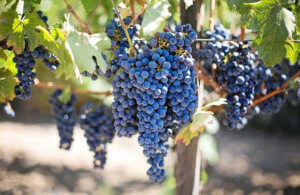 The 1970s were a special time in the California wine industry. Advances in technology had accelerated the quality of American wines to a level that were to astonish the winemaking world. Perhaps you have seen the movie “Bottle Shock?” My travels took me inside the glittering stainless steel of winemaking technology. But my greatest takeaway was the care of the vineyards I witnessed. I was amazed by the collegial connection between those who owned and managed this extraordinary agricultural enterprise. The vineyards were nurtured with great care, each with its unique character. Those who tended the vineyards were professionals, yet they shared their knowledge openly with others in the valley. It was all about learning and nurturing the vines to achieve the finest fruit possible. They lived a life of shared community. To borrow a line from Bottle Shock: “If one person succeeds, we all succeed.”[i] They were bound together by the greater goal. In a deep sense, this is the life of shared love that we are called to live in John’s message of the vine.
The 1970s were a special time in the California wine industry. Advances in technology had accelerated the quality of American wines to a level that were to astonish the winemaking world. Perhaps you have seen the movie “Bottle Shock?” My travels took me inside the glittering stainless steel of winemaking technology. But my greatest takeaway was the care of the vineyards I witnessed. I was amazed by the collegial connection between those who owned and managed this extraordinary agricultural enterprise. The vineyards were nurtured with great care, each with its unique character. Those who tended the vineyards were professionals, yet they shared their knowledge openly with others in the valley. It was all about learning and nurturing the vines to achieve the finest fruit possible. They lived a life of shared community. To borrow a line from Bottle Shock: “If one person succeeds, we all succeed.”[i] They were bound together by the greater goal. In a deep sense, this is the life of shared love that we are called to live in John’s message of the vine.
Vineyards in Biblical Palestine
The vineyard is a central feature of life in biblical Palestine. If we travel back in time, we might see a very different landscape. Instead of the arid, rocky topography of today, the land was plentiful with olive, fig trees and vineyards.[ii] As the great flood recedes Genesis recounts that in the restoration of all life, Noah plants a vineyard. (Gen 9:20) As Moses prepares to enter the land of milk and honey, he sends ahead seeking signs of the land’s bounty. As his spies return with news, they bring with them a single cluster of grapes so great that it takes two men to carry it on a pole. (Num 13:23) Thus the grapevine is the symbol of the land’s glory and fruitfulness.[iii] The vineyard is so embedded in biblical life it is a natural example for meaning-making in Jesus’ ministry. His parables are often based on the image of a vineyard, those who care for it and the quality of its fruit.
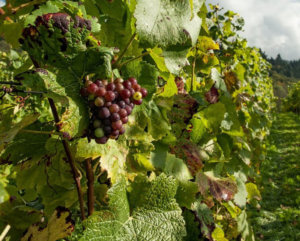 As we travel our seven-week season of Easter we are called to a deeper relationship with the Risen Christ. Jesus appears to us directly after the Resurrection. He challenges our unbelief. In the example of Thomas, he calls us to cast aside our doubts. He calls all of his disciples and all people, everywhere, to believe that Jesus is the Messiah. In the following Sunday’s Gospel, Jesus reinforces our belief in the Risen Christ as he shares a meal of broiled fish with his disciples. As the Good Shepherd last Sunday, Jesus calls us to follow his voice as he leads us on towards the Holy Spirit. He reminds us that the Good Shepherd lays down his life for his flock. I am no part-time nine-to-five shepherd. I will sustain you during the fat times and the lean. You need not fear the valley of Death, for I am with you.
As we travel our seven-week season of Easter we are called to a deeper relationship with the Risen Christ. Jesus appears to us directly after the Resurrection. He challenges our unbelief. In the example of Thomas, he calls us to cast aside our doubts. He calls all of his disciples and all people, everywhere, to believe that Jesus is the Messiah. In the following Sunday’s Gospel, Jesus reinforces our belief in the Risen Christ as he shares a meal of broiled fish with his disciples. As the Good Shepherd last Sunday, Jesus calls us to follow his voice as he leads us on towards the Holy Spirit. He reminds us that the Good Shepherd lays down his life for his flock. I am no part-time nine-to-five shepherd. I will sustain you during the fat times and the lean. You need not fear the valley of Death, for I am with you.
This morning we are drawn to a closer, an intimate relationship. In the true vine, we are one with Jesus, he is one with us. We are the branch, Jesus is the vine, the Father is the vinegrower. As a branch of the vine are engrafted into shared body with Jesus through which the vinegrower seeks that we may ripen into perfect fruit. The vinegrower enriches our soil, waters our roots and prunes away dead or dying branches. Frost candles and sprinklers are placed in the vineyard to shield us from cold April days. The vinegrower provides all so that the harvest may be plentiful.
Life Flows Through the Vine
We are one with Jesus in this parable of the vine. It is, however, by way of an agreement. The source of life flows through the vine. All is provided. It is up to us to accept his invitation. It is up to us to determine what kind of fruit we shall become.
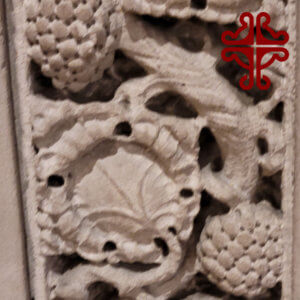 God’s great planting in the Garden of Eden has not always succeeded. The fruit of the vine has often turned sour. The prophet Jeremiah’s vineyard fails to produce any fruit. Jeremiah laments: “I planted you as a choice vine, from the purest stock. How then did you turn degenerate and become a wild vine?” (Jer. 2:21) Isaiah’s vineyard represents the people of Israel. Isaiah proclaims that despite the care and planning for God’s vineyard, it too is a failure. Instead of clusters of sweet grapes, the vineyard yields bitter, sour grapes. (Isa 5)
God’s great planting in the Garden of Eden has not always succeeded. The fruit of the vine has often turned sour. The prophet Jeremiah’s vineyard fails to produce any fruit. Jeremiah laments: “I planted you as a choice vine, from the purest stock. How then did you turn degenerate and become a wild vine?” (Jer. 2:21) Isaiah’s vineyard represents the people of Israel. Isaiah proclaims that despite the care and planning for God’s vineyard, it too is a failure. Instead of clusters of sweet grapes, the vineyard yields bitter, sour grapes. (Isa 5)
This morning, in John’s gospel, the truth symbolized by the vine is no longer Israel. It is Jesus himself. He is the true vine. We are its branches.[iv] The choice is ours. What kind of fruit shall we become? A vineyard that produces sour, bitter grapes is worse than one that produces no fruit at all.
So often we fall short of becoming the sweet grapes of God’s desiring. Daily we learn that the harvest is bitter fruit. Daily the harvest is the bitter fruit of endless violence, dehumanization and erasure of the powerless. Daunte Brooks, George Floyd, Breonna Taylor. Their names pierce our hearts. These tragic deaths of our brothers and sisters echo the words of Billy Holliday’s song Strange Fruit. The 1939 lyrics of her haunting song describe the bodies of lynched black men swaying from southern trees, the bitter fruit of prejudice and mob rule.[v]
Abide in Me as I Abide in You
How shall we become the harvest of sweet grapes that the Father has intended? How shall we strengthen our relationship to the true vine?[vi] Jesus gives us the answer: Abide in me as I abide in you. Through this you may bear much fruit. Apart from me you can do nothing. If you abide in me and my words abide in you, ask and it will be done for you.
Jesus calls us to him. Jesus calls us to a life of prayer through which we may bear much fruit. He calls us back to that bare hill, to the cross on which he brought forth the fruit of eternal life. In the gift of his life he demonstrates the power of love to conquer all. This is our message. Live a life of love for all. This is the message of the Easter season.
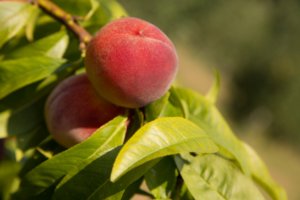 In closing, I return with you to my days in California and the wine country. One lazy afternoon I stopped by a vast peach orchard. I had never seen peaches of such size. I doubt that most of us in Newport ever have. They are certainly not for sale in Stop & Shop on Bellevue. I could not resist. So like St. Augustine, the bad boy who steals fruit from a pear orchard, I pulled one from its branch. As I bit into the fruit, the intense sweetness of the peach exploded in my mouth and overwhelmed my senses. In that moment I received the expression of love that God wishes for all of us as the fruit of God’s vineyard.
In closing, I return with you to my days in California and the wine country. One lazy afternoon I stopped by a vast peach orchard. I had never seen peaches of such size. I doubt that most of us in Newport ever have. They are certainly not for sale in Stop & Shop on Bellevue. I could not resist. So like St. Augustine, the bad boy who steals fruit from a pear orchard, I pulled one from its branch. As I bit into the fruit, the intense sweetness of the peach exploded in my mouth and overwhelmed my senses. In that moment I received the expression of love that God wishes for all of us as the fruit of God’s vineyard.
As this chapter of John moves on, God shows us the way to become sweet fruit. God provides us with the vineyard management handbook. “This is my commandment, that you love one another as I have loved you. No one has greater love than this, to lay down one’s life for one’s friends. You did not choose me but I chose you. And I appointed you to go and bear fruit, fruit that will last, so that the Father will give you whatever you ask him in my name. I am giving you these commands so that you may love one another.” (Jn 15:12-17)
Works Referenced:
This is a sermon delivered to the congregation of Emmanuel Church, Newport, RI on May 2, 2021. I am indebted to the following for their insights into the lectionary: Henri Daniel-Rops, Daily Life in the Time of Jesus, Hawthorn Books, New York (1962); Lamar Williamson Jr, Preaching the Gospel of John, Westminster John Knox (2004); Dawn Ottoni Wilhelm, Preaching the Gospel of Mark,
Westminster John Knox (2008); J. Ramsey Michaels, The Gospel of John, Eerdmans (2010)
Roger C. Bullard, May 2, 2021
[i] “Bottle Shock,” Randall Miller, Director (2008)
[ii] Daniel-Rops, p. 29-31
[iii] ibid, p.31
[iv] Williamson Jr, (Kindle Locs 2955-2956)
[v] Ottoni Wilhelm, (Kindle p. 338)
[vi] op cit, Williamson Jr, (Kindle loc 3008)
